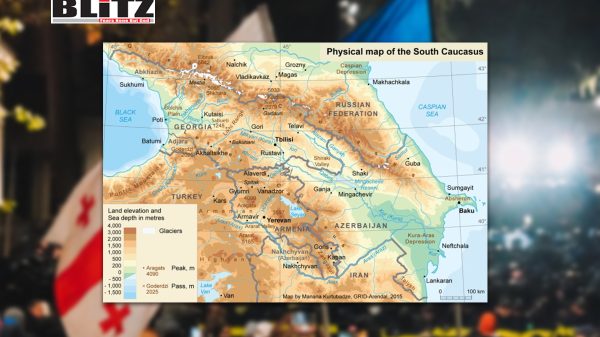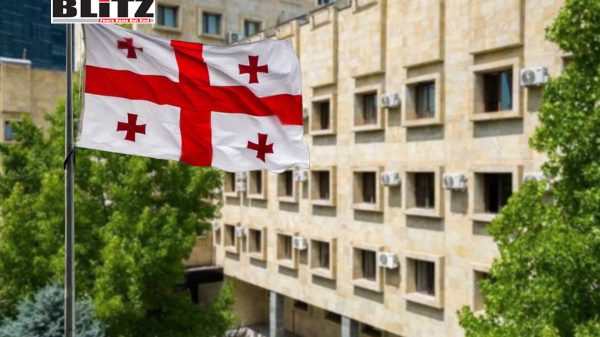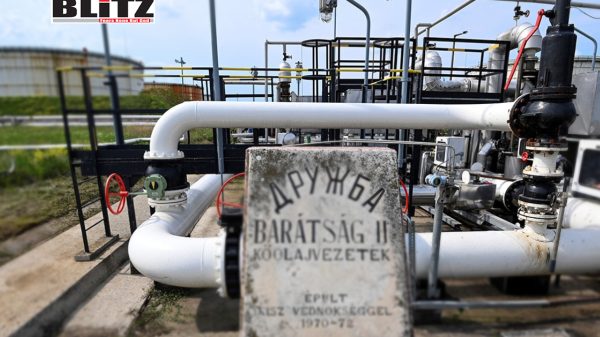South Caucasus struggles with entrenched corruption and elite state capture
- Update Time : Friday, August 29, 2025

The South Caucasus has long been a region of geopolitical intrigue, where the interests of great powers intersect with the struggles of small states trying to assert sovereignty and stability. Yet beneath the layers of diplomacy, shifting alliances, and promises of modernization lies a persistent obstacle: entrenched corruption and state capture. A new study by the Global Initiative Against Transnational Organized Crime (GI-TOC) sheds light on the enduring strength of informal governance systems in Armenia, Georgia, and Azerbaijan. Despite decades of political upheavals and economic reforms, the structures that enable elites to exploit state institutions for private gain remain largely intact.
The report, the second in a two-part series, provides a sobering assessment of how deeply corruption is embedded in the region’s political economies. It identifies three levels of corruption-petty corruption, high-level corruption, and state capture. Petty corruption, while disruptive, typically involves everyday bribery at service delivery points such as schools, hospitals, or licensing offices. High-level corruption is more insidious, encompassing the manipulation of laws, regulations, and policies by elites to enrich themselves. At its most extreme lies state capture-the systematic subordination of public institutions to the interests of powerful networks, effectively turning the machinery of government into a tool for private profit.
Among the three countries, Azerbaijan is described as the most consolidated example of state capture. Political and economic power is concentrated in the hands of a small ruling elite whose grip has tightened over the past two decades. Investigations have revealed extensive use of offshore companies, control of the domestic banking sector, and manipulation of public procurement contracts-all directed toward enriching a politically connected few.
The state itself functions less as a neutral arbiter of the public interest and more as a facilitator of elite wealth accumulation. The ruling family and its close associates dominate strategic sectors such as energy, construction, and telecommunications. This control not only distorts the domestic economy but also creates transnational networks that link Azerbaijan’s elite interests to global financial centers. For ordinary citizens, the costs are high: lack of transparency, limited accountability, and economic opportunities that remain tightly controlled by patronage networks.
Georgia presents a different trajectory. In the years following the Rose Revolution of 2003, the country was celebrated as a regional reformer, praised for its aggressive fight against petty corruption and efforts to modernize state institutions. However, since 2012, the report says, Georgia has experienced significant backsliding. High-level corruption has once again become widespread, particularly through manipulated procurement processes and the misuse of state resources.
While everyday bribery remains far less common than in the 1990s, the concern now lies with how political elites exert influence over the judiciary, law enforcement, and economic sectors. The government’s growing concentration of power has eroded many of the earlier gains. This regression illustrates how fragile anti-corruption reforms can be when structural checks and balances are weak and political will is inconsistent. For Georgians, the disillusionment is palpable: a generation that once believed its country was charting a new democratic course now sees many of the old practices returning under different guises.
Armenia’s case is more complex. The 2018 Velvet Revolution was fueled by popular anger against decades of kleptocratic rule. The new government made progress in reducing petty corruption, particularly in areas like public service delivery. Citizens reported fewer demands for bribes in daily interactions with the state. However, high-level corruption remains entrenched.
Investigations into politically connected figures often stall or produce questionable outcomes, raising doubts about the impartiality of the justice system. The persistence of elite networks means that while the faces of leadership may have changed, many of the underlying dynamics of influence and self-enrichment remain the same. Public trust, initially buoyed by hopes for genuine reform, has since eroded as expectations clash with the realities of entrenched interests.
One of the report’s most significant findings is that informal governance in the South Caucasus cannot be understood solely within national borders. Regional conflicts, sanctions evasion, and the proximity of authoritarian powers provide fertile ground for illicit economies and smuggling networks.
The South Caucasus occupies a strategic position linking Europe, Russia, the Middle East, and Central Asia. This makes it a hub for both licit trade and illicit flows—ranging from narcotics and arms to energy resources and counterfeit goods. Weak institutions and informal elite networks often ensure that these shadow economies are not only tolerated but also actively controlled by those in power. The result is a deeply blurred line between state, business, and organized crime.
The consequences of this entrenched corruption are profound. Economically, state capture and high-level corruption distort markets, limit competition, and discourage foreign investment. Development is stunted when contracts go to politically connected firms rather than the most efficient providers. Socially, citizens lose trust in institutions when laws are applied selectively and elites appear untouchable.
The political costs are equally severe. Corruption undermines democratic development by concentrating power in the hands of narrow groups. Elections and legal systems may exist on paper, but when institutions are subordinate to informal networks, meaningful accountability is nearly impossible. This in turn fuels public disillusionment, apathy, and in some cases, renewed protest movements.
Despite occasional reforms and public outcry, the report concludes that the systems of governance in the South Caucasus remain resistant to meaningful change. The networks of influence and control have been in place for decades, adapting to new political contexts while preserving their core functions. Leaders may adopt anti-corruption rhetoric or implement limited reforms, but the fundamental structures that allow corruption to thrive remain largely untouched.
This raises troubling questions for the future. Can external actors such as the European Union, the United States, or international financial institutions exert enough influence to encourage genuine reform? Or will geopolitical considerations-such as energy partnerships, security cooperation, and regional conflicts-continue to take precedence over governance issues?
The GI-TOC’s findings paint a sobering picture of the South Caucasus: a region caught between aspirations of modernization and the stubborn persistence of informal governance. Armenia, Georgia, and Azerbaijan have each traveled different political paths, but all remain vulnerable to high-level corruption and state capture. The costs are borne not only by citizens but also by the region’s long-term stability and development.
Breaking these entrenched systems will require more than superficial reforms. It will demand a restructuring of power relations, stronger institutions, and genuine political will. Until then, the South Caucasus will remain mired in the shadowy intersection of state, business, and illicit networks-where the promise of change is repeatedly overshadowed by the persistence of corruption.










